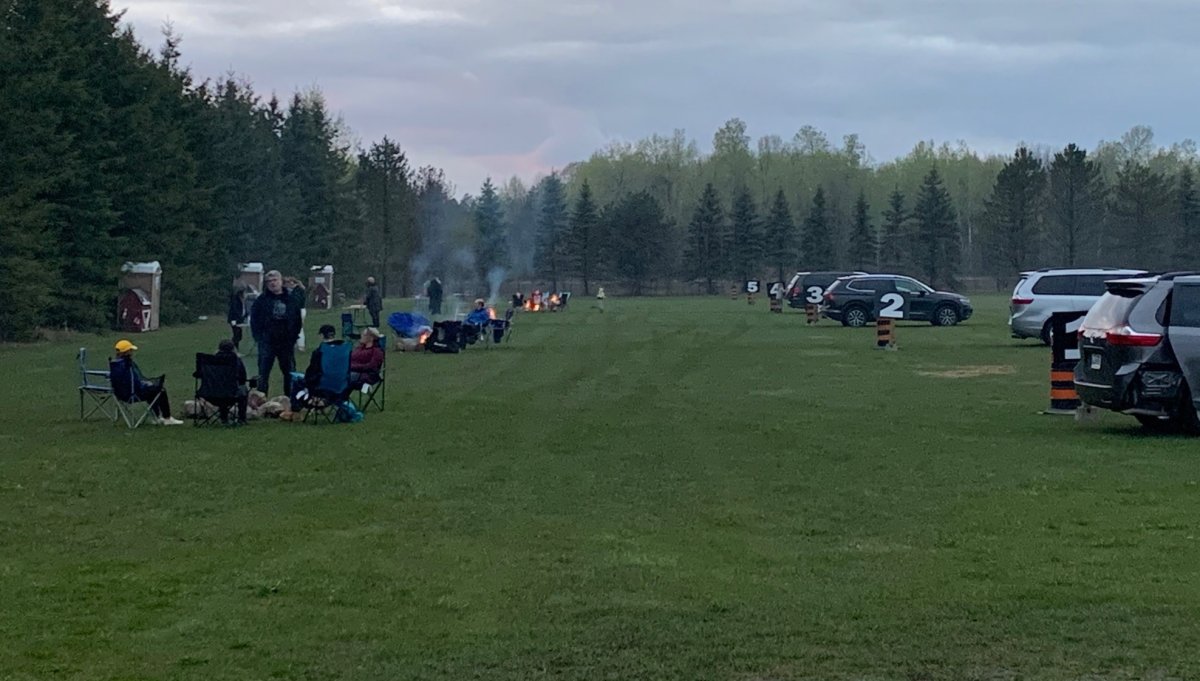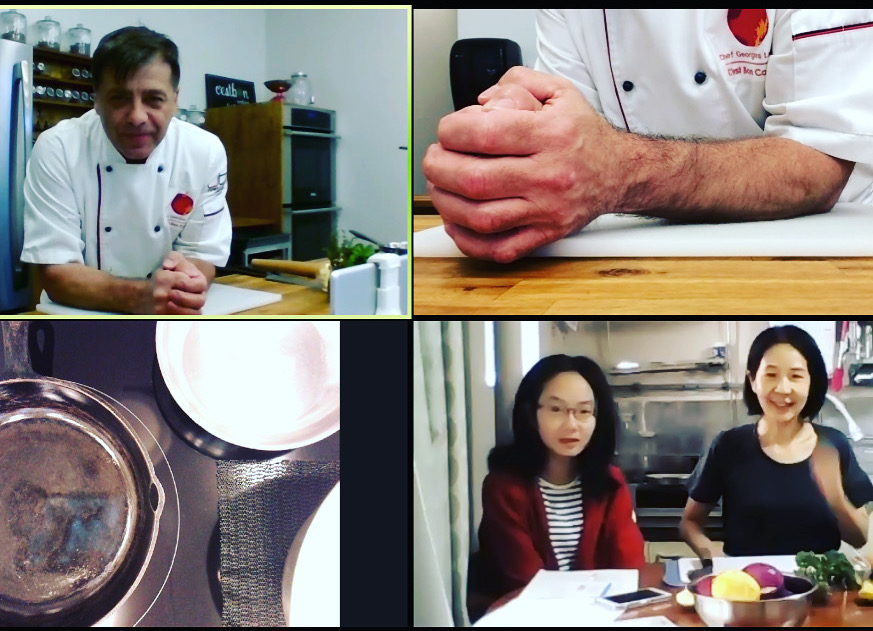At this point in the novel coronavirus pandemic, the days of potlucks and intimate kitchen parties are both long behind us and likely many more months away from returning.

Provincial restrictions banning gatherings of more than five people have effectively nixed the dinner invite, leaving families to dine amongst themselves on takeout or that week’s haul from the grocery store.
One would think, then, that a business that focuses on showcasing the variety of Ottawa’s cuisines and imparting a tip or two on proper chopping techniques in a closed-door setting might be out of luck in the age of coronavirus.
But the ByWard Market’s C’est Bon Cooking, and other tourism and experience-based businesses like it in the Ottawa area, are finding a path forward through the pandemic by offering the intimate, personal experiences that so many are craving amid the shutdown.

C’est Bon co-owner Stefanie Siska says the business, which she bought with partner Georges Laurier in 2016, has been in “survival mode” for the past two months since its March Break cooking camps for teens were cancelled as the province went into pandemic lockdown.
C’est Bon has two main revenue streams: walking tours of Ottawa restaurants targeting the tourism crowd as well as personal or group cooking classes, both of which saw bookings immediately cancelled as the virus spread throughout the world.
“It was pretty devastating, to say the least,” Siska tells Global News.
The outlook was similarly grim at Saunders Farm, which, in addition to growing its own crops, hosts events, festivals and weddings on its 100-acre farm just outside of Goulbourn.
“There’s no such thing as an event or festival these days in Ontario,” says co-owner Mark Saunders, who estimates the business lost 35-40 per cent of its annual sales overnight from cancelled bookings.
The personal touch at a distance
Siska says C’est Bon floated the idea of producing simple cooking videos for YouTube amid physical distancing directives, but the idea of following the same formula as hundreds of other amateur and professional chefs left a sour taste in their mouths.
Instead, C’est Bon reached out to previous customers and students to hear what they’d be looking for and found that an interactive virtual class over video chat could help to fill the void left by physical distancing.
“It was pretty apparent people were still craving some sort of connection, some sort of experience,” Siska says.
There are limits to video sessions: classes are condensed down to one hour instead of three, for example, and the sensory experience of having a professional chef in your own kitchen doesn’t exactly waft through the screen.
But Siska says the virtual classes have allowed Laurier to correct chopping techniques and engage with students just as he would in a classroom setting, effectively delivering the “C’est Bon touch” at a distance.
“I think we’ve figured out a way to bring Georges to life in this full interactive experience that still allows people to … put a really great meal together,” she says.
“It’s definitely focused us on what our value proposition is, who we are.”
While many companies are turning to the virtual realm to continue their businesses, the team at Saunders Farm is catering to clients’ desires for real-world connection by offering “date night” and family packages for a campfire evening on the farm.
Patrons drive up to one of 10 campfire settings, spaced 30 metres from the nearest neighbouring site, each with its own porta-potty and washing station. The deal includes contactless delivery of a pre-packaged meal and a bottle of wine.

Saunders says the campfire offering has “done gangbusters” since it launched, selling out every spot for the first three weeks.
Giving families and couples 90 minutes at a fire might not sound like an innovative business model, but Saunders believes people are craving these simpler, easy-going experiences.
“You smell the firewood. It evokes a happy time,” he says.
“People just want to feel normal. They just want to go back to something they remember.”
Intimacy the focus going forward
Saunders Farm also hopes to be able to run day camps with kids this summer, though with some additional staff per child to allow for smaller groups.
Similarly, Saunders expects that the business’s marquee programming in October — a spooky, full-farm haunt — will entertain half as many visitors as usual to allow for reduced group sizes on a scheduled run.
Even when limits on crowd sizes are eventually lifted, Saunders expects to continue the focus on intimate experiences.

The success of the campfires has given the farm a new way to market its offerings that cater to customers’ desires for personal connection amid pandemic isolation.
“This has given us a chance to improve the business, improve the experience,” Saunders says.
Siska says that despite the success of the virtual offerings, C’est Bon remains in a “very dire situation” and will need significant government support to reach its pre-pandemic stability. Saunders agrees that his family farm is not out of the woods yet, either.
But what started as a desperate play to keep the business afloat has also presented new opportunities for C’est Bon.
The company recently hosted its first virtual class with a former student who’s now living in Japan, and catered to an Ottawa mom who wanted to do a remote class with her kids living in California, Missouri and Illinois.
“People are starting to realize we can do this anywhere,” Siska says.
“(The pandemic) sped up the broadening of our horizons.”
- What is a halal mortgage? How interest-free home financing works in Canada
- Capital gains changes are ‘really fair,’ Freeland says, as doctors cry foul
- Ontario doctors offer solutions to help address shortage of family physicians
- Budget 2024 failed to spark ‘political reboot’ for Liberals, polling suggests






Comments